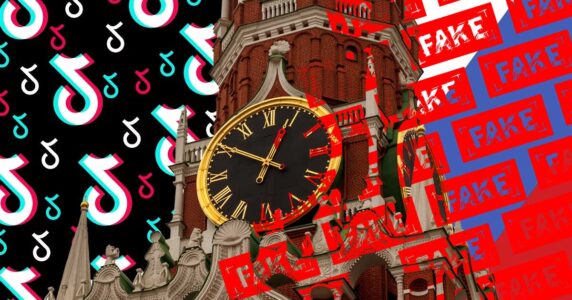Navigation and useful materials
Against the background of the aggravation in the Middle East, which was catalysed by the HAMAS terrorist attack on Israel on October 7, Russia is trying to provoke new conflicts in the world and cause maximum damage to Ukraine.
To this end, Kremlin propagandists resort to spreading fakes, manipulations, and conspiracy in the information space. The Centre for Strategic Communication has analyzed the components of the disinformation campaign, which is now being conducted by Russia.
Accusing Ukraine of supporting terrorism
The first fakes regarding the “Ukrainian trace” of the HAMAS attack on Israel appeared on October 7. Russian propagandists spread two fakes on this topic:
- on the training of UAV operators for HAMAS by the Ukrainian military;
- on HAMAS fighters using weapons from Ukraine.

The original source of both statements was Russian Telegram channels, which did not provide any evidence. The very next day, the propagandists “forgot” about the first fake, focusing on promoting the topic of “HAMAS using Ukrainian weapons.’
Stories on federal channels, publications on Internet websites and Telegram channels were dedicated to it. On October 8, the first falsified “evidence” appeared: a video with a voice-over in Arabic, fake screenshots of non-existent publications in famous foreign media.


The main platforms for distributing this content were Telegram (mainly for the Russian audience) and X (for foreign audiences). Western media refuted the fakes that the Russians had spread on their behalf.
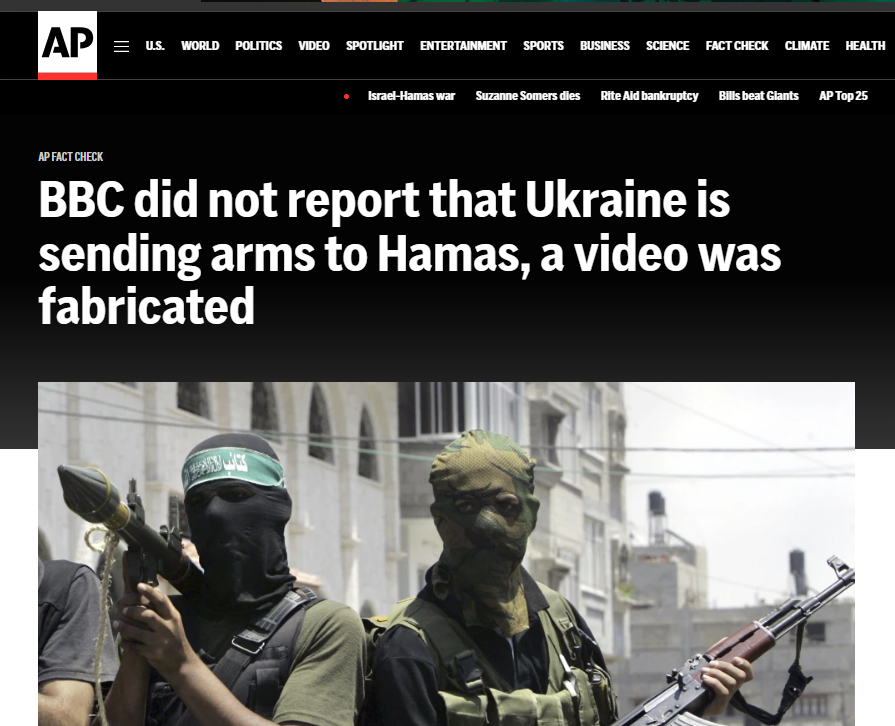
Purpose of the fake:
- provoking anti-Ukrainian sentiments in Israel by artificially “tying” Ukraine to HAMAS;
- accusing Ukraine of supporting international terrorism;
- discrediting Ukraine as a reliable manager of the weapons it receives from partners to repel Russian aggression.
READ ALSO: “Ukrainian Weapons in the Hands of HAMAS”: a New Discrediting Campaign of Russian Propaganda
Provoking splits
Accusing Kyiv of covert support for HAMAS, Russian propaganda at the same time tries to profit from Ukraine’s public support for Israel.
Russian media and speakers comment on the confrontation caused by the terrorist attack and HAMAS atrocities in the territories adjacent to the Gaza Strip, in the context of the decades-long Arab-Israeli conflict and the repressions of Palestinians by Israel. This resonates with the mood of a significant part of the Muslim community of the world and the population of the Global South.
Accordingly, Ukraine’s support for Israel by Russian propaganda is presented as a position hostile to Muslims and to the countries of the Global South, dictated by Kyiv’s dependence on its Western patrons/partners.
Tying Kyiv to the pro-Israel “imperialist” camp is intended to destroy the results of the efforts of Ukrainian diplomacy to establish relations with the countries of Africa, Asia, and the Middle East, whose voices are important in the UN General Assembly and other international forums.
The accusation of the Ukrainian authorities of excessive sympathy for Israel is designed to outrage Ukrainian Muslims who feel solidarity with the Palestinians, but not with terrorists.
By stating that Israel oppresses Palestinians and does not comply with UN resolutions, Moscow is also trying to drive a wedge between Western elites that recognize the primacy of human rights and the supremacy of international law.
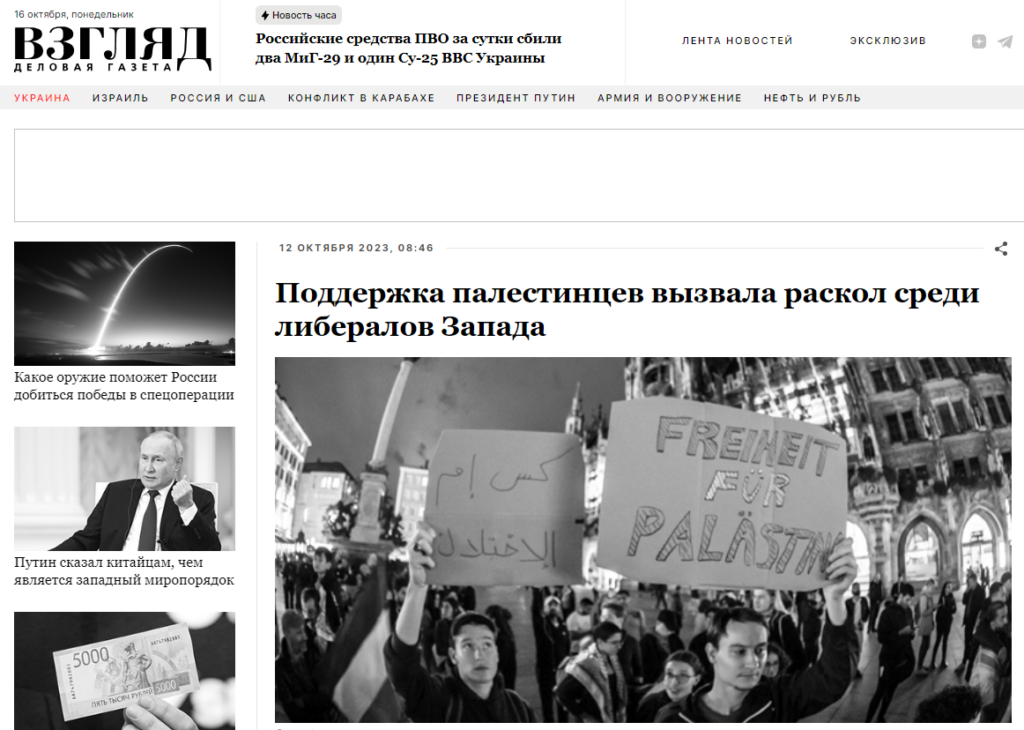
The trending coverage of the confrontation between Israel and HAMAS aims to:
- exacerbate anti-Western sentiments in the Muslim world and in the countries of the Global South;
- deprive Ukraine of international support in non-Western countries;
- turn the Muslim community of Ukraine against the authorities and the active part of society;
- demonstrate the “duplicity” of the West in defending international law in relations with Israel and Russia.
READ ALSO: Malice, Ridicule, Anti-Ukrainian Fakes: Russian Propaganda on HAMAS Attacking Israel
Fomenting anti-Semitism
The anti-Semitic move, traditional for Moscow, has also been used. Against the backdrop of pro-Israel statements by official Kyiv, propaganda promotes conspiracy theories about supposedly secret obligations to Jews.
The fake “New Jerusalem” reanimated by propaganda is one of the variations of such a
“Jewish conspiracy.” Its essence lies in the fact that with the support of the Ukrainian authorities, the Jews allegedly plan to buy or otherwise seize part of the territory of Ukraine and settle it.
Posts about “uncovering a conspiracy” are spread on Telegram, X. The fake news is promoted as aggressively as possible on TikTok, where many new video messages from bloggers and excerpts from old interviews of conspiracy theorist Igor Berkut appeared in October.
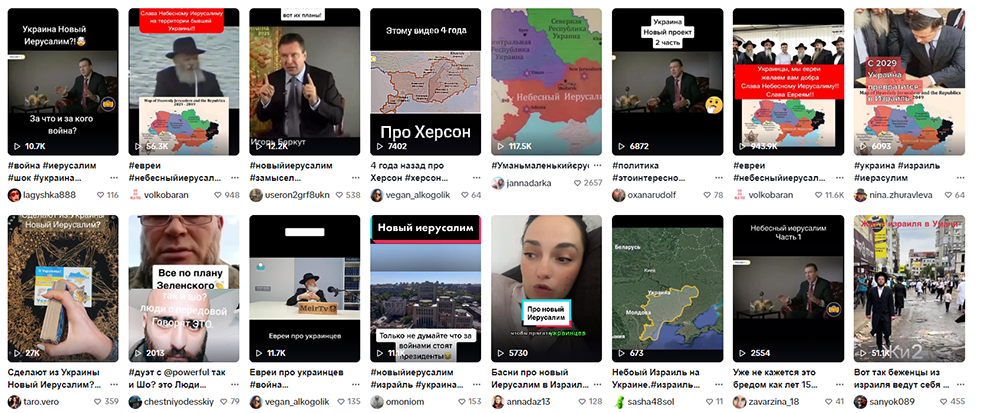
The ex-MP of the Verkhovna Rada Illia Kyva, who is currently hiding in Russia and is a frequent guest of Moscow television studios, “adjusted” the classical version of the conspiracy theory: he announced the claims of Jews to the western regions of Ukraine. Although before that, conspiracy theorists had been talking for a long time about the “Jewish threat” to Crimea, or to the southeastern regions of Ukraine, and about plans to turn Dnipro into a new “Zionist capital.”


For more than 10 years, the conspiracy about the “New Jerusalem” in Ukraine was spread mainly by marginal figures and movements of openly anti-Semitic and pro-Russian orientation. The above-mentioned Igor Berkut, a graduate of the Moscow Higher Command School, headed a small party called Great Ukraine and ran for a Member of Parliament. Since 2020, he has been wanted on suspicion of treason. According to the SSU, Berkut has a Russian passport.

Among Russian officials, the most notable public supporter of anti-Semitic conspiracy can be considered Sergei Glazyev, who in 2012-2019 had the status of an advisor to the President of Russia. He also led public rallies of Russia’s supporters in Donetsk, Luhansk, and Odesa in 2014.

Russian special services used anti-Semitic conspiracy to incite residents of the east and south of Ukraine to disobey the government and recruit fighters during the so-called “Russian spring” in 2014. The locals were intimidated by the fact that Kyiv allegedly agreed to “give the Jews” these regions. The beginning of hostilities in Donetsk and Luhansk oblasts was “explained” by the fact that the Jews “drived a wedge between the fraternal Slavic peoples” in order to “clear the territory” for themselves. The promotion of this narrative intensified during the full-scale invasion. In particular, another wave of spreading fake news was recorded, allegedly “the Knesset allocated USD 84 bln to purchase Ukrainian land.” This fake has been popping up on social media periodically since at least 2018.
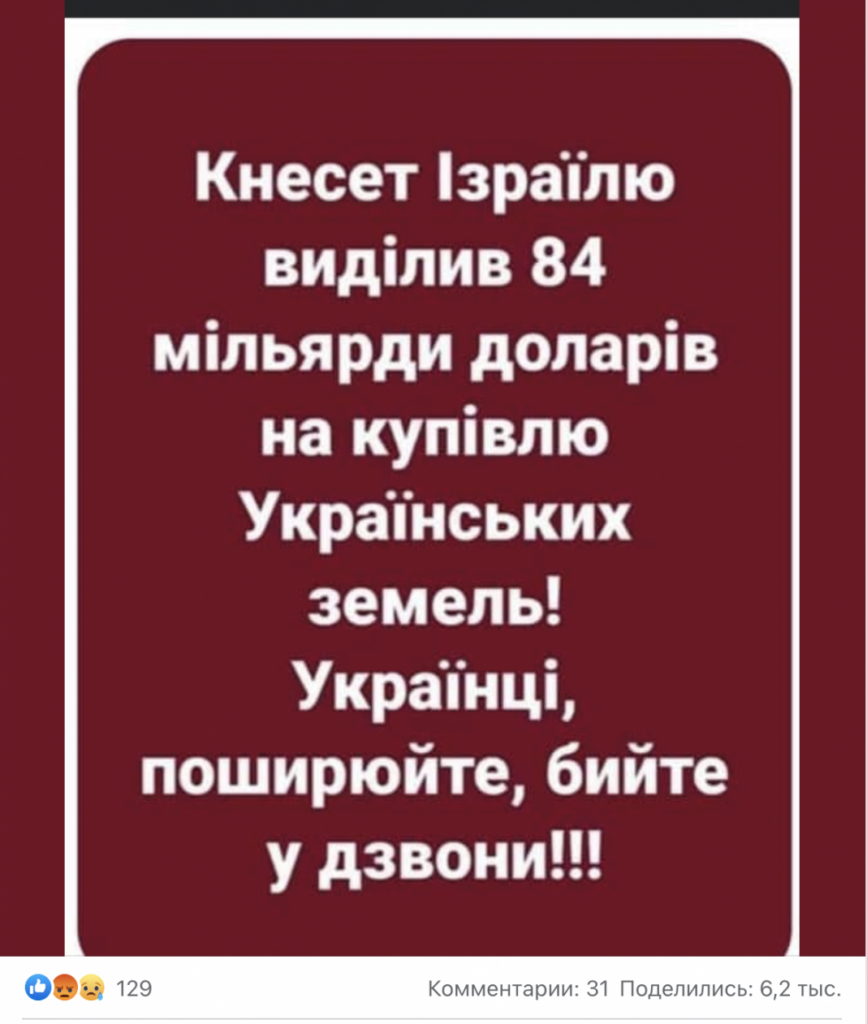
Photos and videos of the celebration of Rosh Hashanah by Hasidic pilgrims in Uman were repeatedly presented by conspiracy theorists and Russian propagandists as “proof” of the beginning of implementing the “New Jerusalem” plan. In particular, in September 2022, messages of this content were shared in the Georgian segment of social networks.

Purpose of the fake:
- provoking anti-Semitic sentiments in Ukraine to create a picture of “Ukrainian Nazis” who are ready to commit pogroms;
- incitement of internal confrontation within Ukrainian society in order to weaken it;
- shifting the responsibility for the war from the aggressor state to the “participants in the Jewish conspiracy”;
- reinforcing the narrative of Ukraine as a “failed state” under “external control” for the Russian audience and far-right and conspiracy theorists in the West.
Contrasting aid to Ukraine and Israel
Russian propagandists and officials do not hide their hopes that due to the aggravation in the Middle East, Washington will be forced to “shift attention” from Ukraine to Israel.
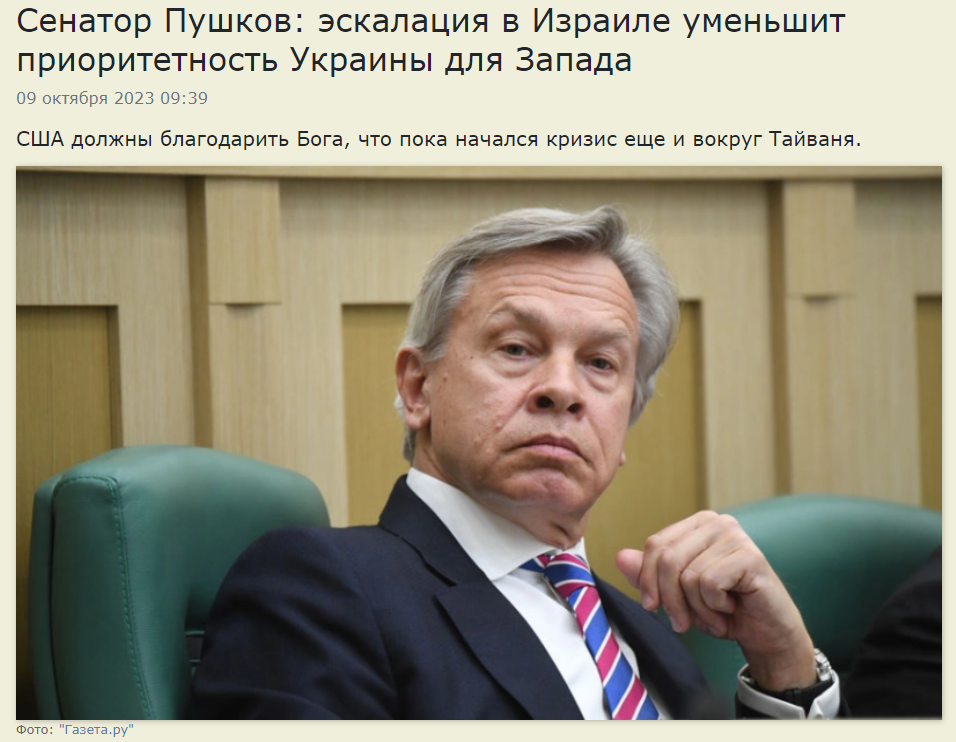
To this end, the following statements are promoted:
- The United States is incapable of supporting Ukraine and Israel at the same time in terms of resources.
- The Middle East is a more important region for the United States than Eastern Europe. Israel, unlike Ukraine, has the documented status of a military ally of the United States.
- The United States will be forced to redirect resources to Israel that were previously intended for Ukraine.
Using various platforms (social networks, media, statements by public figures), the Russians are trying, at least, to provoke a discussion in the United States about the feasibility of supporting Ukraine and to make the voices of supporters of its curtailment louder. Until October 7, the key arguments were the “irrational use of taxpayer funds” and the “financing of corruption” in Ukraine and the Biden administration. After the HAMAS attack, the demand to support Israel, not Ukraine, was added.
Russia also resorts to information provocations, creating fakes that the Ukrainian government allegedly calls on the United States to abandon support for Israel in favour of Ukraine.

Purpose of the manipulation:
- creating an artificial dependence between American support for Ukraine and Israel, forming a false dichotomy: “either Ukraine or Israel”;
- exacerbating splits in American society by drawing citizens into a knowingly conflicting discussion;
- deterioration of relations between Ukrainians and Israelis, who, in accordance with the Kremlin’s goals, should see each other not as partners, but as competitors and even enemies.
Conclusions
The escalation in the Middle East was perceived by Moscow as a “window of opportunity” to weaken its enemies — Ukraine and its international partners. Therefore, Russian propaganda was actively involved in forming the necessary information background.
Kremlin propagandists work simultaneously with different audiences, producing many fakes:
- provoke anti-Ukrainian sentiments among Israelis — and anti-Israeli ones among Ukrainians;
- accuse Ukrainians of aiding terrorists
- justify HAMAS violence by Israel’s colonial policies
- traditionally use the anti-Semitic narrative
- spread the theories of the “Jewish conspiracy”
Moscow does not take any principled position on the Middle East conflict. It is ready to support anyone and condemn everyone, if it sees any short-term benefit.
If you have found a spelling error, please, notify us by selecting that text and pressing Ctrl+Enter.
